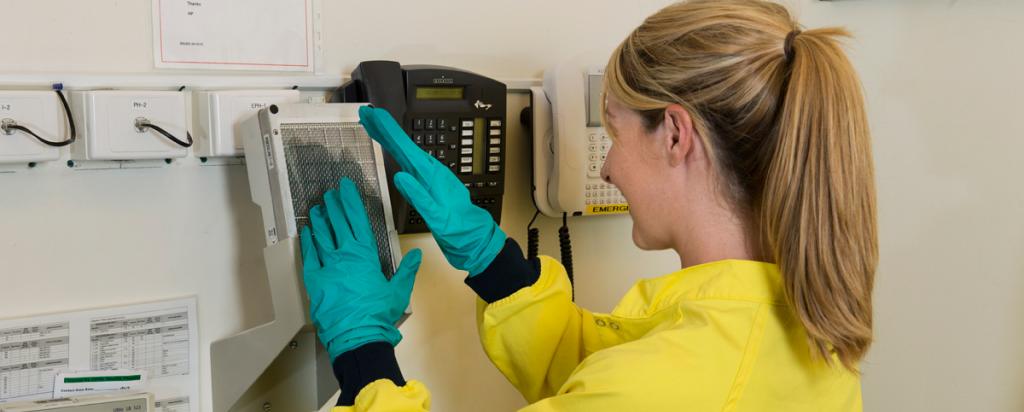

Published on the 18th May 2018 by ANSTO Staff

ANSTO has a small delegation, primarily representatives from the Radiation Services group, participating in the 5th Asian & Oceanic International Radiation Protection Association (IRPA) Congress on Radiation Protection being held in Melbourne 20-23 May.
The IRPA holds its regional meeting for the Asia Pacific Region at the Congress, which provides an opportunity for participants to discuss all aspects of radiation safety.
ANSTO has been providing expert radiation safety, management consultancy and tailored services to a wide range of clients for more than 25 years.
A number of ANSTO staff are presenting or contributing a poster for the event.
Health physicist Gurava Reddy Induri will explore ‘Diversity and Challenges for Radiation Protection Services at ANSTO.’
Head of Communications and Community Relations Cassandra Casey will share information about how ANSTO meets the ‘Challenges of human resource development and education for nuclear science and technology’ in a session on Synergy for Nuclear/Radiation Asian Teacher/Student Development.
Posters have been prepared by Senior Health Physicist Prashant Maharaj on ‘Diversity and Challenges for Radiation Protection Services at ANSTO.’
Health Physics Surveyor Sui Chi Wong and Physicist Nicholas Karantonis will highlight ‘Neutron Monitoring Defence-In-Depth at the Australian Centre for Neutron Scattering.’
The poster prepared by Work, Health and Safety Advisor Gary Lux, Prashant Maharaj and Process Engineer Alexander Wysocki explores the ‘Radiation Protection Optimization of Lutetium-177 Production’ in the OPAL reactor. The Lutetium-177 is produced for use in clinical trials.
In addition to exhibiting a trade booth promoting Radiation Services. ANSTO has sponsored a Barista cart to support the event.
Congress participants also have an opportunity to tour the Australian Synchroton.
On the Congress website, Convenor of the Congress and President of the Australasian Radiation Protection Society A/Prof Brad Cassels said radiation safety professionals would have the opportunity to identify key and emerging issues that radiation safety professionals face today.
Evolving standards and the increased proliferation of complex radiation technologies, such as medical sector radiation applications were challenges in the delivery of radiation safety services.